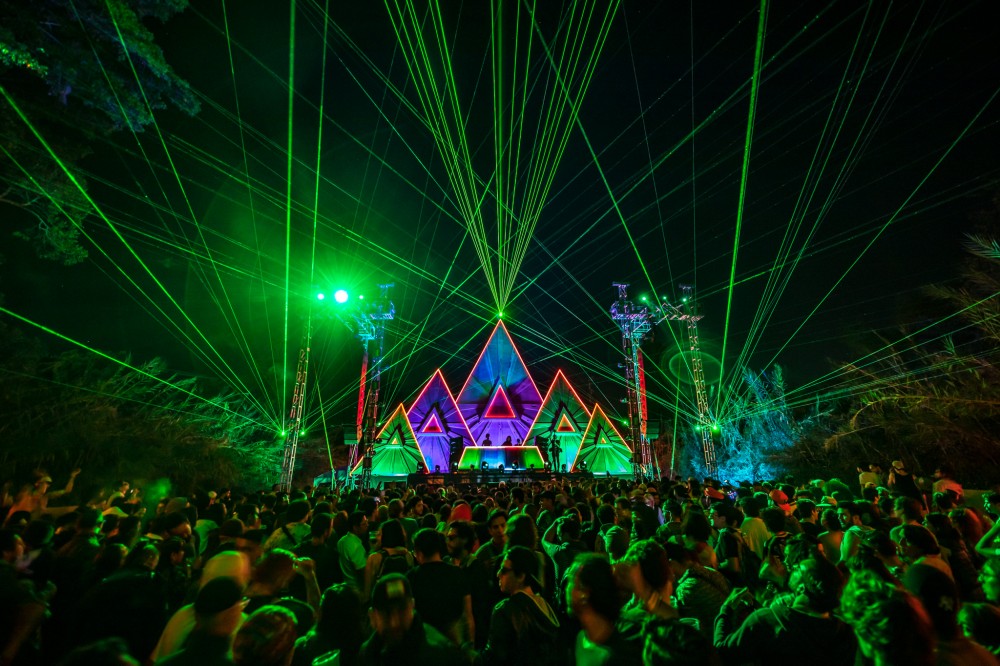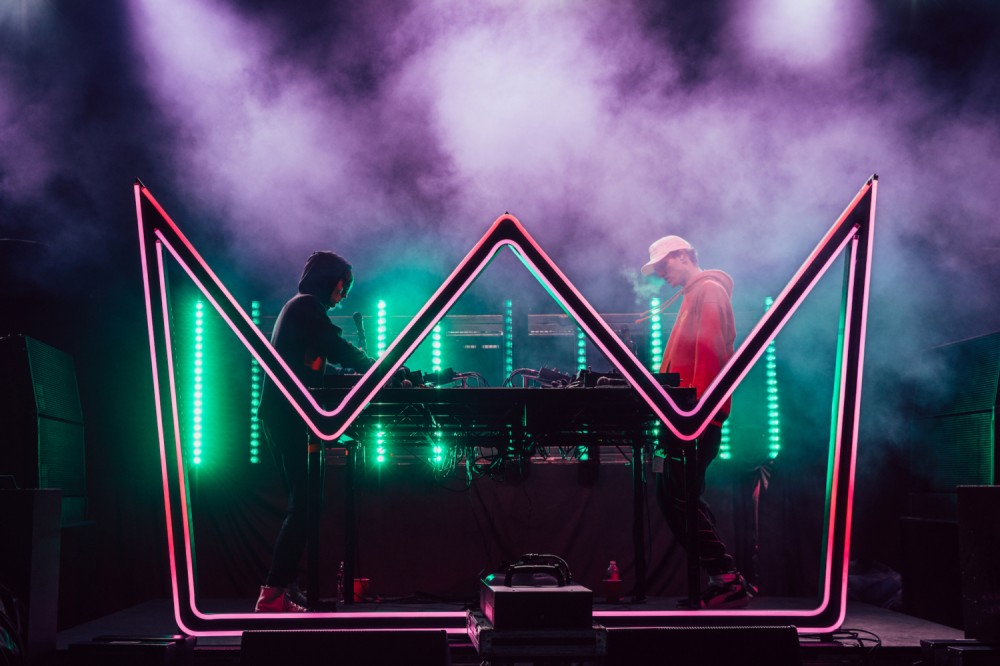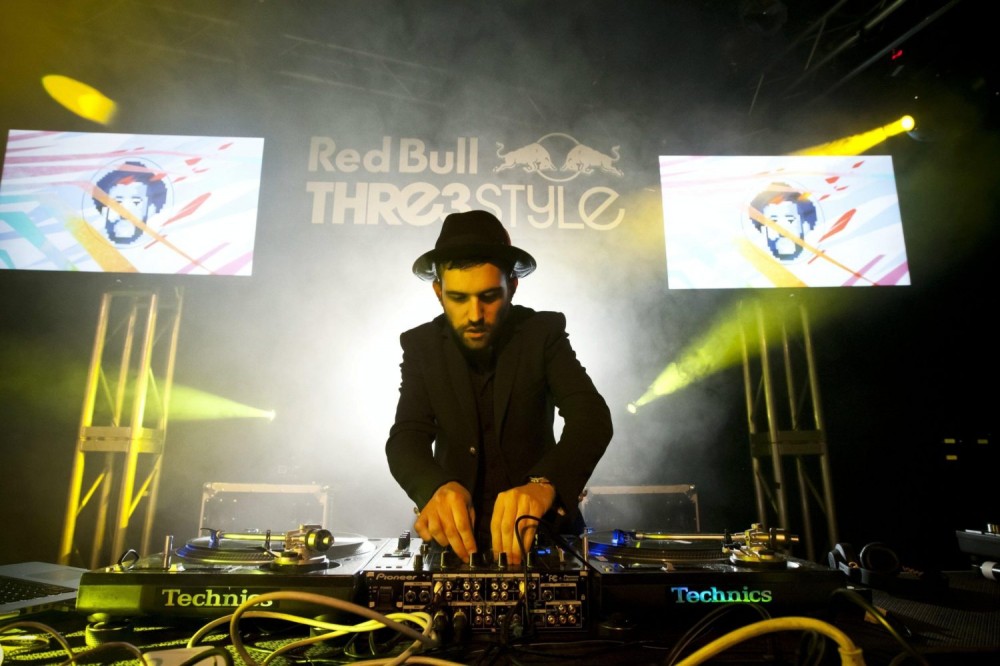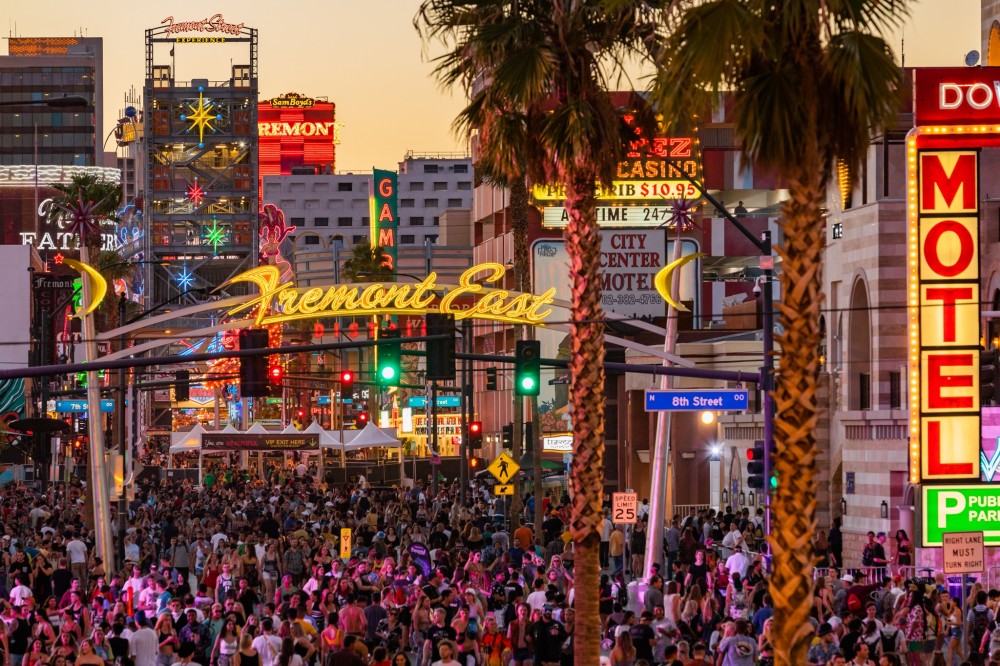
Carnaval de Bahidorá festival is where music and nature join forces – EDM All Day
Words by: Ben Jolley
It’s Sunday afternoon, the final day of Mexican festival Carnaval de Bahidorá. Hundreds of people swim in the Yautepec River under the scorching sun while Analog Africa provides a soundtrack of crate-digging Afro and Caribbean selections from the island’s Asoleadero stage. It’s moments like these, and there are plenty, that demonstrate why Bahidorá earns its home stretched over Valentine’s weekend, as well as its residency atop a picturesque natural park three hours from Mexico City.
Started in 2013 by a group of friends in their mid 20s, general director Iñigo Villamil says that he and the team were “very young, perhaps too young,” to be planning something like it.
“We were throwing underground parties in Mexico City and wanted to recreate the same vibe, just with a more elaborate event,” he says.
Whilst searching for locations the team found the privately-owned natural park Las Estacas—a hidden gem that really needs to be seen to be fully fathomed.
The festival has grown organically over the years, from a single-stage and 3500-person endeavor, into a 10,000-capacity three-day bonanza. Deeply emblematic of its roots and people, Bahidorá remains very much a festival for the local community with few international visitors among its audience. While 75% of attendees come from Mexico City, and residents from local towns like nearby Morelos make up 20% of the crowd, just 5% of ticket-buyers are from different countries. And while the team would love to attract more international people so they can see and explore the country and then Las Estacas as a destination, organizers have reservations. “We don’t want to spoil the experience,” says Villamil.
And that’s exactly what Bahidorá is, an unforgettable experience where music comes second to experiential wonder: art installations, the crystal-clear Yautepec river to swim or relax in, meditation and healing sessions as well as a forum for talks on environmental awareness.
“Of course, you can keep a schedule and go and see the artists you want to see, but you can also get lost and find treats all over the place,” Iñigo continues.
While Friday acts as the warm-up, with the El Umbral stage hosting house and techno sets from Theo Parrish, Marcellus Pittman and Nicole Misha, two Detroit heroes and a fast-rising star. Saturday is when the carnival really gets going. Arriving on site at midday, EDM All Day is just in time for the annual opening ceremony, a parade featuring performers donning traditional tribal outfits and feather headdresses that seemed to erupt out of nowhere.
With Carnival affording new discoveries around every corner, it makes sense that its captured a repeated audience, year on year. “We have a very loyal crowd,” Iñigo reflects, adding that compared to many artist-driven festivals, the Bahidorá family are not myopically fixated on the lineup.
“They care more about the experience. They don’t even think about the line-up because they know they’re going to have a great time and the music comes second. It’s very freeing and I think that’s the beauty of it all.”
That’s not to say the music acumen is an afterthought. The Bahidorá lineup is one of the most colorful you’ll find. In charge of booking the artists each year, which is a mix of international names and local talents, Lucia Anaya says the main aim is to “create a line-up that is eclectic and in connection with the location and the vibes around it.” But rather than setting a goal of booking a specific headliner, Lucia and her team voraciously scout talent across the map, with the main idea being to promote emerging artists from Mexico (including Sotomayor, whose opening performance attracts a packed crowd to the main stage), Latin America and all around the world.
The canopy-covered on-the-water stage Las Estacion may focus on roots, reggae and rap, from Jamaican dancehall group Equiknoxx and self-love-promoting legend Sister Nancy to flamboyant São Paulo collective Teto Preto and Tennessee rapper BbyMutha. But the main stage, Sonorama, with flags of all nationalities hanging between the trees, is curated as a representation of the contemporary climate. Veering between the upbeat electro-funk of Nigeria’s Ibibio Sound Machine to the sensual hip-hop/house of Compton rapper-producer-singer-dancer Channel Tres and the festival’s biggest booking to date, the iconic Erykah Badu, each of the artists really bring the tropical jungle setting to vibrant life.

By night, a laser-heavy night-time forest rave, where giant trees are lit up by neon strobes and the punchy yet clear sound-system (impressively powerful for an open-air setting) is put to work thanks to DJ sets that traverse house, techno, acid, breaks and garage. All this is courtesy of electronic music’s finest: Chaos In The CBD, Palms Trax, Josey Rebelle, Avalon Emerson back to back JASSS, Joe Clausell and Move D in succession from 10pm on Saturday to 8am on Sunday really is a dance music lover’s jungle fever dream come true.
Aside from the unique setting and top-tier line-up, one of the most important aspects of Bahidorá is its focus on sustainability. It works earnestly to ensure that the ecosystem remains uncompromised. Despite a hefty 10,000+ turnout, the site remains intact and cleanly.
Of course, trying to limit the environmental impact comes with experience.
“It’s something that has really matured over the years,” Iñigo reflects. “I love how the crowd has evolved over the years, too. Not only as an organisation, but the audience too was a lot sloppier at the start. Now, though, people are more conscious and in tune with the environment. Essentially, it’s the perfect example of how festivals – and those who attend them – can have a great time, but without damaging the planet… “
But if there’s a message at the heart of Carnaval de Bahidorá it’s the importance of community, unity, and the audience that the festival attracts – a mix of polite and courteous Mexicans, Americans, Spaniards and Europeans. It is one of the friendliest and inviting this writer has experienced. Bahidorá is a place where inclusivity is celebrated, and attendees are encouraged to be free and express themselves, walking around covered in glitter while wearing just underwear or dancing barefoot on the grass, irrespective of race, ***uality, or gender. It’s this all-embracing atmosphere, coupled with the beautiful natural setting and unbeatably diverse aural agenda, that makes Bahidorá such a unique utopian paradise.



